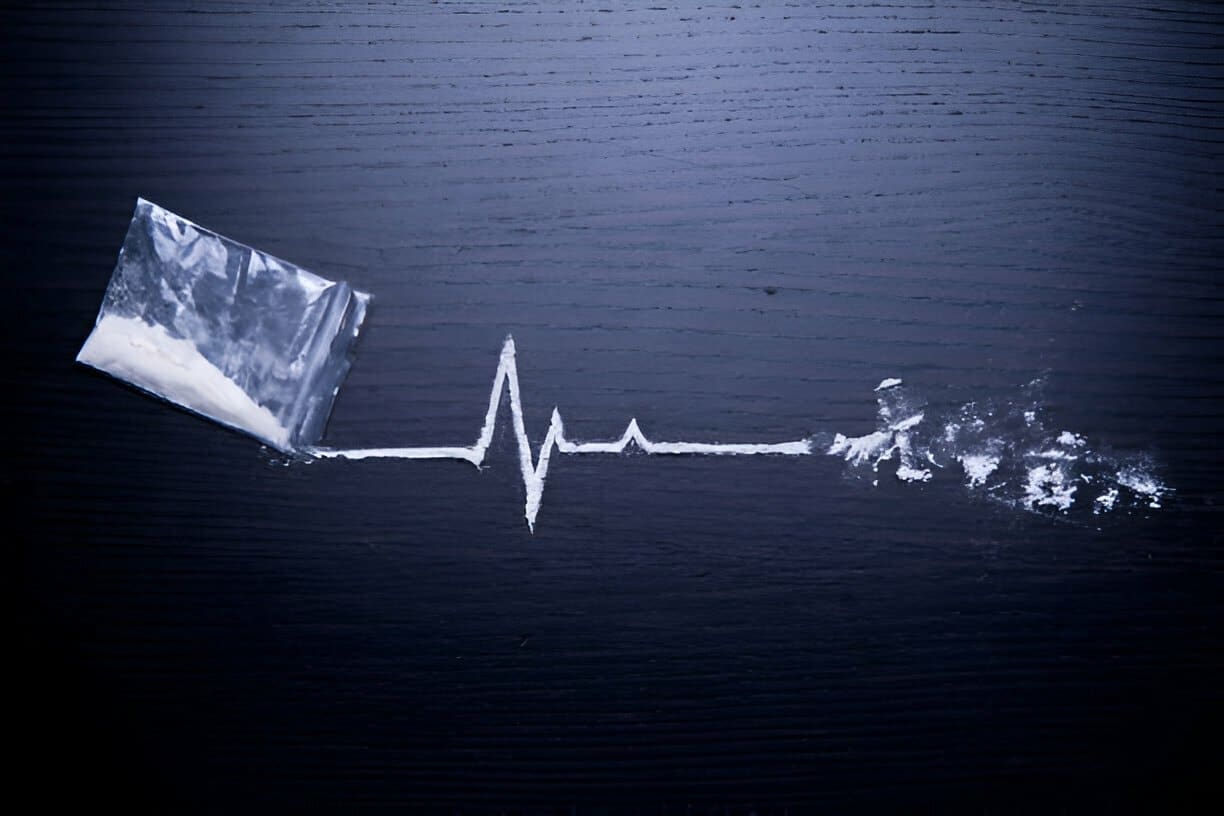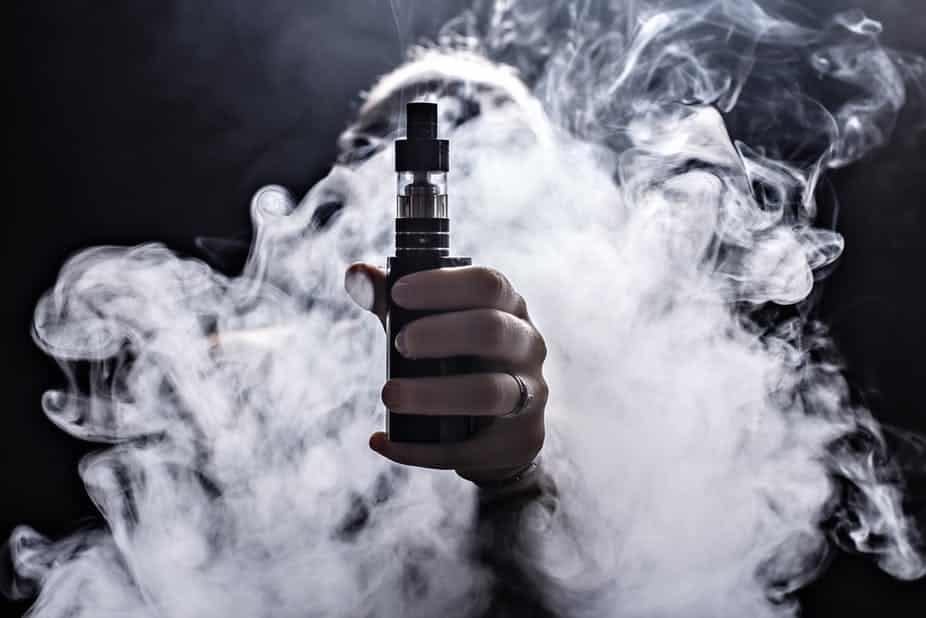Start exploring drug and alcohol rehabs today. Treatment providers are available to answer your questions.
Drugs are substances that, when used, create changes in the body’s processes, either psychologically or physically. Tobacco, caffeine, and alcohol are legal drugs, whereas heroin, cocaine, and ecstasy are banned. Prescription medications such as opioids, sleeping pills, and benzodiazepines are just as addictive as illegal drugs.
People misuse drugs for a variety of reasons, and most of the chemicals they abuse are psychoactive, meaning they alter one’s behaviour, mental process, and mood because of their effects on the central nervous system. Hallucinogens, stimulants, and depressants are all terms used to describe these drugs.
Drug addiction, also known as Substance Use Disorder, is a disease that affects a person’s brain and behaviour and leads to an inability to control the use of legal and illegal drugs.
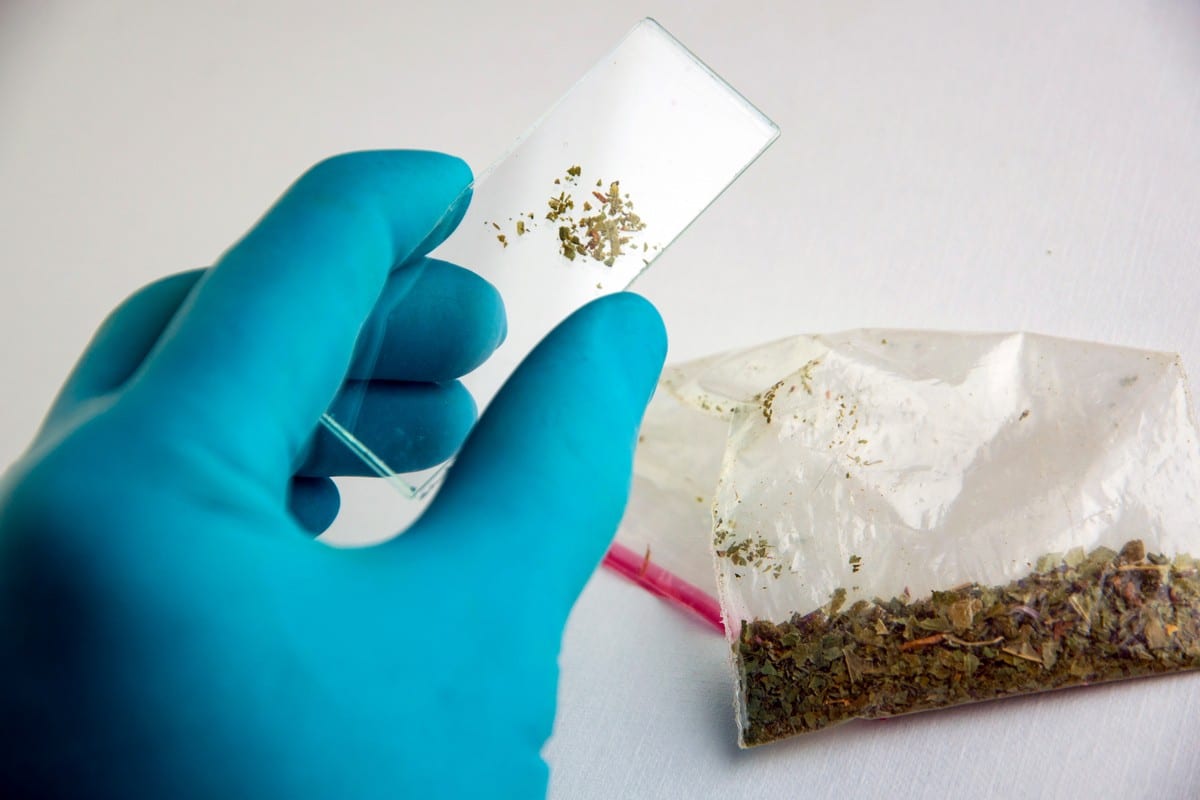
The term addiction refers to compulsive drug-taking despite negative consequences.
Substance use disorders include both substance abuse and substance dependence. SUDs affect people of all ages, races and ethnicities.
People who suffer from these disorders may experience withdrawal symptoms when they stop using substances. This means their body has adapted to the presence of those drugs in their system. When the drugs are removed, the body reacts with unpleasant feelings and cravings for more of the same. These reactions are referred to as withdrawal symptoms. Withdrawal symptoms usually begin within hours after someone stops using drugs and last for several days.
People who develop SUDs often feel depressed and anxious. Most people who try to quit report feeling sad, irritable, guilty, angry, worthless, hopeless and restless. Some people feel physically ill during this time. For example, if you’ve been drinking regularly, your stomach might hurt; if you smoke cigarettes, you might cough and sneeze frequently; and if you take medications for high blood pressure or cholesterol, you might get headaches.
Drug Addiction is a serious problem that requires immediate attention. Get Confidential Help Now. Call our 24h admissions line to get help – 0800 999 1083.
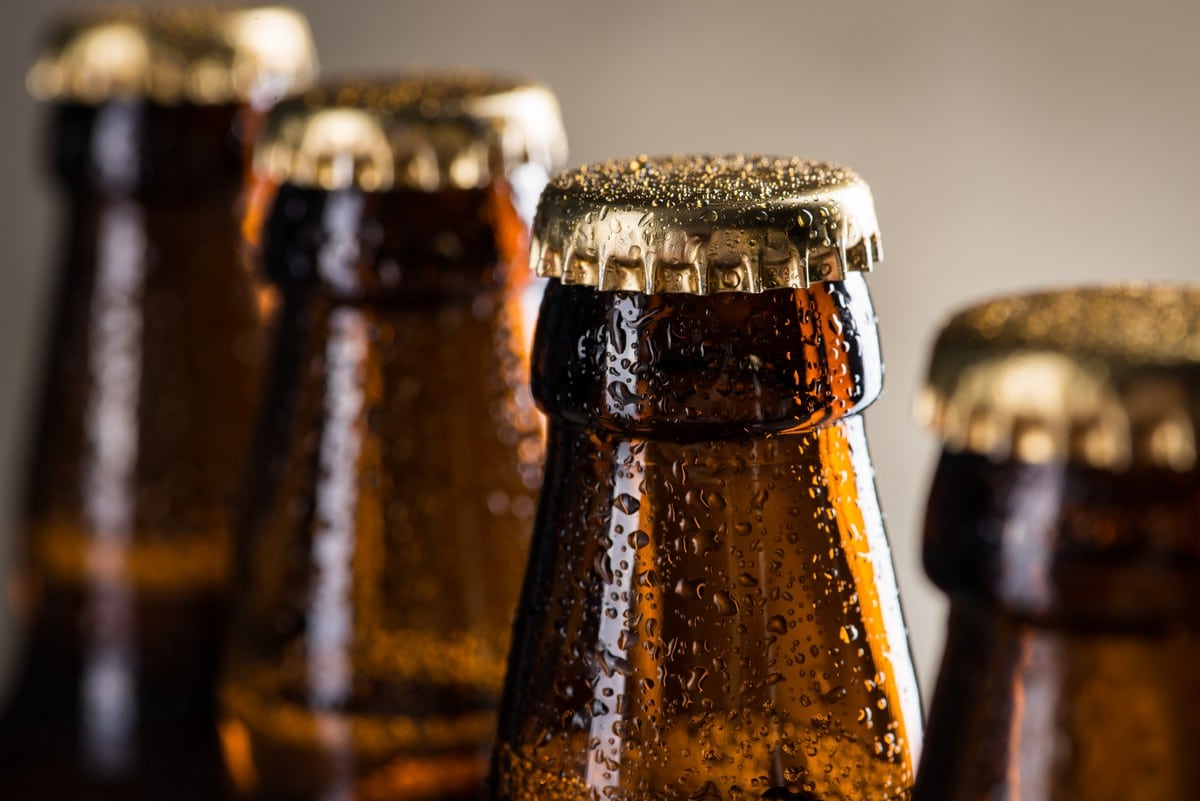
Alcohol is classed as a depressant of the Central Nervous System (CNS), which implies that it slows down brain function, neural activity, and the functioning of different critical processes in the body.
Many people believe that drinking alcohol makes them feel better than they would without alcohol. This belief is called the “euphoria effect. The euphoria effect is produced by chemicals in the brain called neurotransmitters.
Alcohol addiction, also known as dependency, is a mental and physical disorder marked by uncontrolled desires to consume alcohol despite the harmful effects on one’s health, finances, and relationships. Alcoholism can be detrimental to one’s daily obligations since it alters the way the brain functions and causes them to struggle to maintain control over their cravings.
Amphetamines are a stimulant-type synthetic drug that stimulates the central nervous system, causing feelings of confidence, focus, increased energy, and even euphoria. Amphetamines were first used to treat nasal congestion, but they soon became popular for narcolepsy, hyperactivity in children, weight loss, alcohol hangovers, and, on rare occasions, depression.
Dexedrine and Adderall are prescription stimulants, while ecstasy and methamphetamine are illegal stimulants. When taken recreationally, both legal and illegal amphetamines are highly disruptive and addictive.
Many students use these drugs in the mistaken belief that increased attention and energy will help them perform better in school, but this is not the case.
Cannabis has been used for several purposes by ancient societies dating back to the third millennium BC. It is the most commonly used illegal substance on the planet and is utilised for medical, spiritual, religious, and recreational purposes.
This substance has hallucinogenic, depressive, and stimulant properties. It’s commonly smoked, but it’s also edible in its raw form, in cooked or baked meals, and even as tea. Some of its most serious side effects include psychosis, weight gain, insatiable appetite, paranoia, variations in body temperature, auditory and visual hallucinations, and extreme anxiety.
Cocaine is a narcotic made from coca leaves that have been crystallised or ground into a powder. It was designed to be used as a pain reliever at first, but it is very addictive and one of the most hazardous medications we are aware of.
This drug produces euphoria, but tolerance develops quickly, requiring the user to use it more frequently and in larger amounts to achieve the same high. Cocaine’s lethal side effects include heart attack, brain haemorrhage, stroke, and respiratory failure.
Drug Addiction is a serious problem that requires immediate attention. Get Confidential Help Now. Call our 24h admissions line to get help – 0800 999 1083.
Crack cocaine, or simply crack, refers to the rock or crystal form of cocaine. The popping or cracking sound it makes when heated before being smoked gives it its name. The crystals range in colour from white to pale pink to yellow.
Because it’s 75% to 100% pure, crack is the most dangerous and potent type of cocaine. While cocaine is pricey, crack is affordable to even teenagers. Because the most popular form of obtaining crack is through smoking, it is possible to become hooked even after the first usage.
Methamphetamine comes in a variety of forms, including crystal meth. Methamphetamine is a white crystalline drug that can be injected, smoked, snorted, or even swallowed.
People of various ages abuse crystal meth, which is commonly used as a ‘club drug.’ This potent and extremely hazardous substance serves as a stimulant at first, but it eventually destroys the body systematically.
This extremely addictive drug has been linked to significant health problems, including psychosis, violence, memory loss, and possible brain and heart damage.
DMT (N, N-Dimethyltryptamine) is a hallucinogenic chemical found in trace amounts in animals and plants. It’s the most powerful psychedelic, but it’s only effective when combined with another substance that slows down its metabolism.
The substance, which has been used for thousands of years, causes intense hallucinations. It’s made from plants native to South America, Mexico, and portions of Asia. It’s commonly smoked or vaporised in a pipe and consumed orally in brews. Rarely, it’s injected.
3,4-methylenedioxy-methamphetamine (MDMA), widely known as ecstasy, is a synthetic drug that affects perception and mood. It has chemical similarities to hallucinogens and stimulants.
Ecstasy causes altered time and sensory perception, emotional warmth, pleasure, and increased energy when consumed. The substance was once only found in parties and nightclubs, but it has now gained popularity.
The substance, also known as Molly, can raise blood pressure and heart rate and induce muscle cramps, nausea, memory issues, sadness, irritability, and other side effects.
GHB, or gamma-hydroxybutyric acid, is a CNS depressant synthesised as a soapy or salty-tasting liquid or a white powder that can be turned into capsules or tablets.
The substance can cause aphrodisia, improved empathy, and euphoria when used in low quantities, but it can cause respiratory failure, unconsciousness, and even death when doses are increased. It’s easy to overdose on GHB because the liquid form in which it’s commonly sold makes judging its potency difficult.
This is a dissociative anaesthetic that is commonly used on animals. It can be added to cigarettes or joints, snorted, taken in drinks, or injected in liquid or powdered form. Because of the dreamy, disconnected condition it generates, ketamine has been used for date rape.
The substance’s short-term and long-term consequences include cravings, possibly fatal respiratory difficulties, hallucinations, amnesia, sadness, numbness, vomiting, nausea, and elevated blood pressure and pulse rate. When consumed in large amounts, it is possible to have a near-death or out-of-body experience.
Hallucinogens are substances that affect one’s perception and thinking processes to the point that reality is drastically skewed. The effects of these medicines on the user’s perception differ significantly from those of many other substances.
Dissociative experiences, a changed sense of time, hallucinations, and synaesthesia are some of the side effects of these drugs. There are hundreds of substances classified as hallucinogens, all of which carry a substantial risk of psychological or physical drug dependence.
PCP (phencyclidine), ketamine, DMT, peyote, magic mushrooms, and LSD are all hallucinogens.
Get Confidential Help Now. Call our admissions line 24 hours a day to get help. 0800 999 1083
Heroin is a highly addictive narcotic that is made from poppy plant resin. It creates intense withdrawal symptoms and is frequently injected, making it even riskier because this intake method can lead to other severe issues, including AIDS and other blood-borne illnesses.
It was initially introduced to the market in 1898 as a morphine addiction treatment and tuberculosis treatment. Eventually, however, it was discovered that heroin was more addictive than morphine.
Long-term and short-term symptoms of heroin usage include lethargy, sleepiness, decreased pain sensibility, slower heart rate and breathing, confusion, decreased sexual function, sleeping issues, and severe constipation, among other things.
Ice is a powerful version of the methamphetamine substance. It can be smoked like cocaine, resulting in heightened alertness and a powerful, instant high. It gets its name from the fact that it looks like a piece of ice or rock candy.
Unlike the 15-minute high that comes with using crack, the high that comes from ice can last anywhere from 8 to 24 hours. The cravings for this substance are known to be great, and it can lead to high levels of aggression and confidence.
Some of the effects of the drug include dental problems, sores on the body, heart palpitations, weight loss, brain damage and fatal lung and kidney disorders, among others.
Get Confidential Help Now. Call our admissions line 24 hours a day to get help. 0800 999 1083
Inhalants are drugs that are consumed solely through inhalation. Nitrates, gases, aerosol sprays, and solvents are examples of such medications. Cleaning fluids, glues, markers, and spray paints are all commonplace in the workplace and at home.
These dangerous compounds they contain provoke psychotropic effects when inhaled. Although they are not regarded as drugs since they are not made to generate a high, many people, particularly teenagers and children, use them for that purpose.
Deodorant or hair sprays, glue, correction fluids, gasoline, and dry-cleaning fluids are all examples of inhalants.
LSD is a powerful mood-altering drug made from the lysergic acid found in the ergot fungus that grows on cereals. It comes in a slightly bitter, colourless, and odourless liquid form.
This drug is usually sold in gelatine squares, capsules, or small tablets, but it is also available in liquid form. It can also be used to make small squares of absorbent paper with cartoon characters or other designs on them.
A “trip” is a profound dissociation from reality caused by this drug. These journeys might last up to 12 hours.
Mephedrone is a psychoactive stimulant that briefly improves physical and/or mental function. It’s also known as 4-methylephedrone or 4-methylmethcathinone (4-MMC); however, it’s not the same as methadone.
The drug’s psychotropic properties have no medical use, but it’s often taken recreationally. It has similar effects and has the same problems as MDMA, but it is potentially more harmful. Damage to the nasal passages, heart palpitations, migraines, and psychosis are possible side effects.
Methamphetamine, sometimes known as meth, is a white crystalline drug that can be injected, smoked, snorted, or swallowed. It induces a strong desire to continue using it regardless of how it is taken since it produces a false sensation of wellbeing and contentment.
Speed, Chalk, Crank, and Meth are some of the street names for this narcotic. The substance produces an increase in energy, excitability, and confidence, as well as a decrease in hunger. Its effects usually last 6 to 8 hours, although they can last up to 24 hours.
Meth has many side effects, including elevated body temperature and blood pressure, irregular or rapid heartbeat, quicker breathing, decreased hunger, and increased wakefulness.
Phencyclidine (PCP) is a dissociative anaesthetic banned from intravenous use after it was discovered to cause psychotic responses. It’s usually taken as a tablet, powder, or liquid. It generates reality distortions rather than visual hallucinations.
PCP can induce stroke, fever, coma, respiratory failure, seizures, and even death in high dosages. When used long-term, it can cause weight loss, difficulties thinking or speaking, depression, and memory loss.
Prescription drugs, including opiates, sleeping pills and benzodiazepines, are known to be as addictive as illicit drugs.
Prescription drugs are typically strong medications that require careful usage to prevent any adverse side effects. This is why the legal purchase and use of such drugs need a prescription from your GP. Doing otherwise can be harmful to your physical and mental health and could even prove fatal in worst-case scenarios. If you believe that you or a loved one are dependent on any of these drugs, we recommend that you seek treatment as soon as possible. Call us on 0800 999 1083 to discuss treatment options.
Don’t go through the process of recovery alone. Treatment providers can answer your questions. Get in touch with one today.
Call 0800 999 1083 today!
Addiction is a complex illness characterised by compulsive drug seeking and use, loss of control over drug-taking, and continued drug abuse despite adverse consequences. It is believed that addictive disorders result from a combination of genetic factors, environmental influences, and life experiences.
When a person engages in an enjoyable activity and cannot stop doing it, even if it interferes with daily life (e.g., employment, hobbies, family time, finances, etc. ), their health and welfare suffer. As a result, this behaviour is classified as an addiction. A person who takes drugs to the point of alienating friends and family and losing a career and then continues to abuse drugs despite this is most likely addicted to those drugs. Similarly, someone who has an uncontrollable desire to gamble, even sinking into life savings to do so and wants to do nothing but to gamble, is likely addicted to the risk (and illusion of control) of gambling.
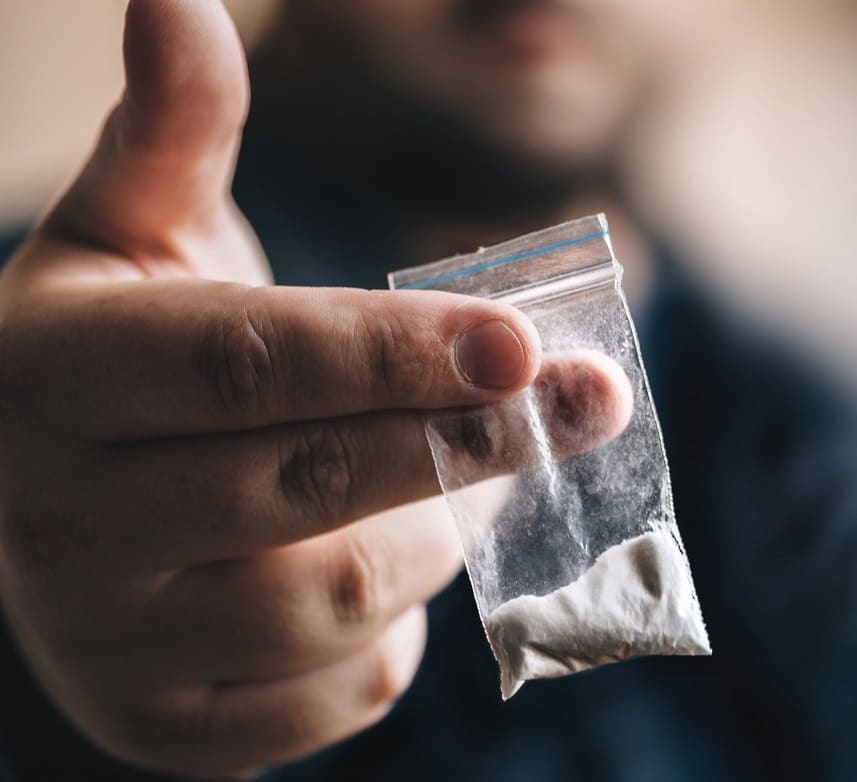
Some emotional stress is usually at the basis of addictive behaviour. This issue is so deeply buried within a person’s subconscious mind that confronting it is too hard or unfathomable a task. Pleasure is obtained in excess to relieve stress, to make it go away; the joy of a drug high or the excitement of placing a large bet. Stopping the behaviour risks resuming thoughts about whatever is causing the emotional stress; the presence of addictive behaviour indicates that there are no appropriate coping methods for that problem. The only mechanisms in place are distracting and unhealthy, such as substance abuse or problem conduct.
When used occasionally, substances might cause temporary positive effects. They can provide pleasure and relaxation, relieve stress and pain, improve moods, and enhance creativity. However, when abused, they can cause serious health problems and lead to dependency. Substance abusers often become trapped in a cycle of relapse because their brains adapt to repeated exposure to the substances. The body becomes dependent on them, and it takes more and more of the substance to achieve the desired effect. When the effects wear off, the user feels withdrawal symptoms and needs even more significant amounts of the substance to feel normal again. This process continues until the individual reaches a point where they cannot function without the substance. They have developed an addiction at this stage, and they must rely on the substance for survival.
Get Confidential Help Now. Call our admissions line 24 hours a day to get help. 0800 999 1083
Some drugs have particular effects on the brain. Others affect multiple parts of the brain at once. Many drugs alter how information flows between regions of the brain. Drugs may increase or decrease the number of neurotransmitters released into synapses. There are several mechanisms involved in Drug Addiction.
Research suggests that addictive behaviours result from changes in dopaminergic pathways in the brain. The mesolimbic pathway connects structures in the limbic system to the nucleus accumbens. Dopamine release in the NAcc causes feelings of reward and pleasure. When someone takes a drug, the drug activates receptors on dopamine-producing cells in the ventral tegmental area, causing more dopamine to be released in the NAcc. Repeated exposure to drugs can cause adaptations in these dopamine pathways. These adaptations lead to increased sensitivity to the rewarding effects of drugs.
Other theories suggest that addictive behaviours occur when inhibitory control mechanisms fail. People who experience problems controlling their impulses often seek out activities that relieve negative emotions. For example, people who drink alcohol to cope with anxiety may develop a tolerance for alcohol and need higher doses to achieve the same level of intoxication. As tolerance develops, it becomes increasingly difficult to stop drinking.
Another theory suggests that addiction results from learned associations between environmental cues and the physiological responses caused by drug use. According to this theory, repeated exposure to drugs creates new memories in the hippocampus, which store long-term memories. These memories make it easier for people to associate environmental cues with drug use and addiction.
Researchers have used functional magnetic resonance imaging to study how different parts of the brain respond to drugs. fMRI measures blood flow in the brain. Researchers found that cocaine triggers activity in several brain areas, including the prefrontal cortex, amygdala, thalamus, hypothalamus, and striatum. These findings support theories suggesting that drugs produce their reinforcing properties through interactions with specific regions of the brain.
The ability of repeated exposure to a drug to produce long-lasting changes in the function of specific neural circuits has been termed drug addiction-related neuroplasticity. DARN occurs not only in the reward circuitry described above but also in many other brain systems involved in learning and memory. For example, cocaine sensitisation involves long-term alterations in synaptic strength between glutamatergic neurons in the nucleus accumbens. Repeated administration of cocaine causes a downregulation of AMPA receptor subunits GluR2/3 in the synapses between medium spiny neurons and dopaminergic neurons in the ventral tegmental area. In contrast, chronic abuse of amphetamine increases the expression of GluR2/GluR3 in the same MSNs.
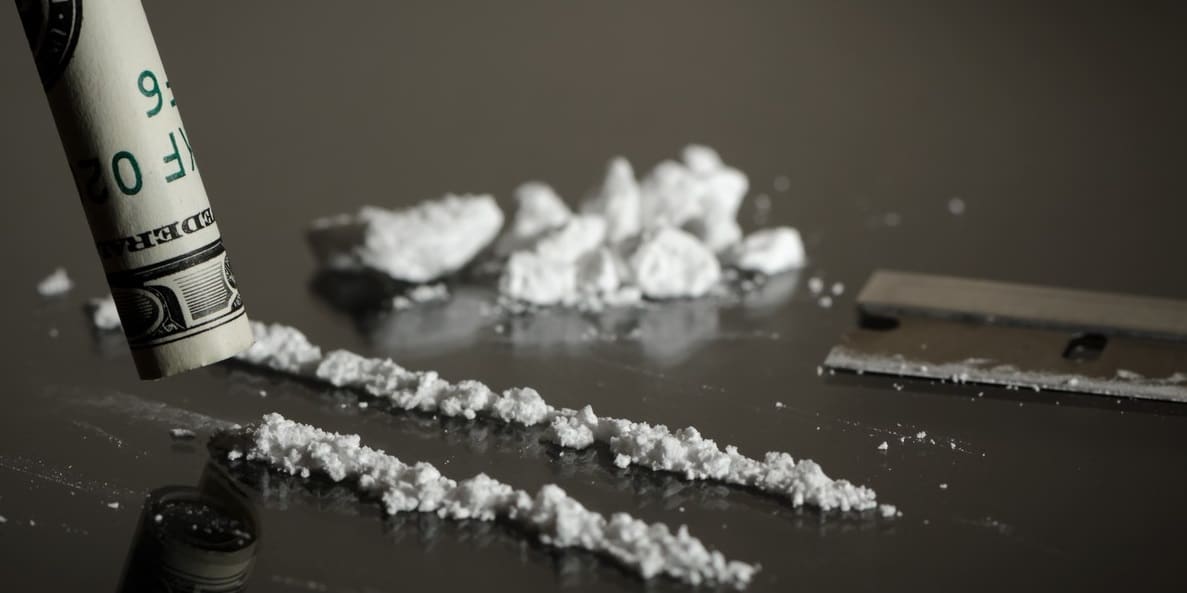
The brain reward system consists of two major components: the mesocorticolimbic dopamine system and the opioid peptidergic system. This is one of the main reasons why opioid addiction is so prevalent in societies.
A key feature of addictive substances is their capacity to activate the mesolimbic pathway. Dopamine is the primary neurotransmitter in the mesolimbic system. Dopamine is released in the nucleus accumbens (NAc). The release of dopamine into the NAc is thought to be critical for the rewarding effects of drugs of abuse.
In addition to its role in the reward circuit, dopamine plays a role in motor control and cognition. It is well established that dopamine can enhance attention. Dopamine depletion impairs working memory and spatial navigation.
Get Confidential Help Now. Call our admissions line 24 hours a day to get help. 0800 999 1083
The causes of drug addiction vary greatly based on the specific substance being abused. However, some common factors often play a role in whether or not a person becomes addicted.
People with histories of depression, anxiety, or personality disorders are more prone to develop an addiction. Research indicates that people with these disorders are more likely to engage in risky behaviours, including using drugs and alcohol. In addition, people who have experienced traumatic events, such as natural disasters or military combat, are more likely to develop substance abuse problems.
Studies suggest that genetics play a role in determining if a person develops a substance abuse problem. For example, research indicates that specific genes may make a person more likely to develop a substance abuse problem. Other studies suggest that certain genetic disorders may increase the risk of developing a substance abuse problem.
There appears to be a link between certain genes and alcoholism. Studies indicate that individuals with a family history of alcoholism are twice as likely to develop this condition than those without. Research suggests that children whose parents abuse alcohol are three times more likely to develop an addiction themselves.
Epigenetic factors may play a role in whether a person becomes addicted to drugs. Epigenetic factors are believed to cause changes in gene expression, which means that certain genes turn on or off at different times. Studies show that environmental influences, such as stress levels may alter epigenetic patterns. This could lead to changes in gene expression, resulting in addiction.
Researchers believe that the brain’s structure plays a role in how people respond to substances. Some studies suggest that individuals with smaller brains tend to be more vulnerable to addiction than those with larger brains. In addition, scientists have found differences in the size of various brain parts between people who do and don’t abuse drugs.
Studies indicate that early life experiences may influence a person’s susceptibility to addiction later in life. Early childhood trauma, such as neglect or abuse, may contribute to the development of addiction. Researchers believe that these traumatic events may affect the formation of neural pathways in the brain. These pathways may help regulate emotions and behaviours related to addiction.
Studies show that social environment may play a role in addiction. People who grow up in families where substance abuse is prevalent are more likely to develop substance abuse problems themselves. Research shows that peer pressure may encourage adolescents to experiment with drugs. Peer pressure may also encourage them to seek out opportunities to obtain illicit drugs.
Research indicates that family history may play a role in the development of addiction. If one parent has a substance abuse problem, their children may be more prone to developing a substance abuse problem as well. Family members who experience a mental health disorder, such as depression, anxiety or schizophrenia, may also be more susceptible to addiction.
A lack of self-control always accompanies the development of substance abuse problems. Sensation-seeking is regarded as a key element in developing an addiction. Another psychological feature connected to having a drug addiction is impulsivity. This element can lead even those who are aware of the dangers of drugs to use them.

Don’t go through the process of recovery alone. Treatment providers can answer your questions. Get in touch with one today.
Call 0800 999 1083 today!
If you were exposed to drugs when you were young, you’re more likely to develop a substance use disorder later in life. This is especially true if your parents used drugs during pregnancy. A baby born to a mother who uses drugs while pregnant has a higher probability of having attention, impulse control, memory, learning, and social development problems. These factors, in turn, increase their chances of developing an addiction.
Get Confidential Help Now. Call our admissions line 24 hours a day to get help. 0800 999 1083

There are many signs of drug addiction. People who are addicted will exhibit one or more of the following characteristics:
Physical signs associated with drug addiction include:
Psychological signs associated with drug addiction may include:
Behavioural signs associated with a drug addiction involve:
When someone stops using drugs, their body goes through a process known as withdrawal. It begins immediately after the drug is taken out of the body and lasts for about 48 hours. During this period, the body experiences changes in its chemistry, physiology and psychology. Physical Signs of Withdrawal include:
Addiction can lead to serious health problems if left untreated. It can cause death by overdose, liver damage, heart attack, stroke, lung disease, cancer, diabetes, kidney failure, and many other illnesses.
Another problem caused by drug abuse is the spread of diseases. People who inject drugs share needles. This spreads hepatitis C and HIV/AIDS.

When someone uses too much of a drug, they can die. Overdoses happen most often when people mix prescription drugs with street drugs like heroin or cocaine. Overdose symptoms include:
If you or someone you know is experiencing the symptoms of a drug overdose, please call 999 immediately!
People who abuse drugs for long periods can develop hepatitis, cirrhosis, or liver cancer. Hepatitis is inflammation of the liver caused by infection, toxins, or excessive drinking. Cirrhosis is scarring of the liver due to repeated injury or chronic diseases. Liver cancer is a type of cancer that starts in the cells of the liver.
If someone has a history of heart problems, they are at higher risk of having a heart attack while abusing drugs. Drugs can affect blood pressure, cholesterol levels, and clotting ability. All these factors increase the chances of having a heart attack.
Abusing drugs can raise your blood pressure, which increases your chance of having a stroke. Strokes occur when a part of the brain stops working because of a lack of oxygen. This can be fatal if not treated quickly.
Cigarette smoking and drug abuse both contribute to lung disease. Smoking causes emphysema and COPD. People who smoke and abuse drugs have more severe symptoms than those who only smoke.
Some drugs are toxic to the body, causing cancer. These include amphetamines, barbiturates, benzodiazepines, cocaine, crack, ecstasy, methamphetamines, phencyclidine, and propoxyphene.
Long-term drug abuse can cause insulin resistance, making it harder for the body to get sugar into the cells. Diabetes occurs when there isn’t enough insulin available to convert glucose into energy.
Drugs can destroy the kidneys’ filtering system. Kidneys fail over time as the body tries to clean itself out. When this happens, waste products build up in the bloodstream.
Drugs may interfere with nerves, making them less sensitive to pain and touch. They can also cause muscles to twitch uncontrollably.
Drug abuse can cause depression, anxiety, insomnia, and memory loss. It can also lead to weight gain and high blood pressure.

A drug habit can damage relationships with family members, friends, co-workers, and romantic partners. Family members may feel angry and frustrated about how addicted loved ones treat them. Friends may avoid spending time together because they don’t want to deal with the effects of drug abuse. Co-workers may be reluctant to work with someone whose productivity is impaired by drugs. And lovers may find themselves unable to trust each other.
A criminal record can hurt an addict’s job prospects and limit their opportunities for housing and education. If you’re arrested for possession of drugs or paraphernalia, you could lose custody of your children.
Addiction is often associated with crime. Many crimes involve drugs. For example, criminals steal money to buy drugs. They sell drugs to make money. Or they commit robberies so they can get high.
Many crimes are committed to obtaining money to purchase drugs. This includes theft, robbery, burglary, fraud, counterfeiting, embezzlement, extortion, bribery, prostitution, gambling, and dealing drugs.
Many people addicted to drugs attempt suicide. Drug abuse can cause depression, anxiety, agitation, restlessness, insomnia, and suicidal thoughts. These side effects can increase your risk of suicide. Talk to your doctor right away if you experience these symptoms.
If you are thinking about harming yourself, please call 0800 999 1083 now.! Your life matters. You deserve to live it free from pain.
Many people have both mental health disorders and addictions. Mental illness and drug addiction are often related. Some people with drug addiction have a history of being treated for mental health disorders.
These co-occurring mental disorders affect people differently. People with co-occurring conditions usually experience problems at work, school, and relationships.
They may feel depressed or anxious. They may have trouble sleeping. They may have thoughts of harming themselves or others.
Many people turn to drugs to cope with stressful events in their lives. Sometimes people use drugs to self-medicate. That means they use a substance to treat the adverse effects of their mental illness.
People sometimes use drugs to relax or relieve pain. People also use drugs to escape from problems. They may end up developing alcoholism and drug dependence in an attempt to forget personal or work issues.
Some people use drugs to try to change their personalities. They may use cocaine to become more outgoing or more aggressive. Many people believe that using a particular drug makes them less likely to experience negative feelings.
Addiction is a chronic relapsing condition characterised by compulsive drug seeking and use despite harmful consequences.
Adolescents are particularly vulnerable to developing drug addictions. Adolescent drug abuse begins before age 18 and continues into adulthood.
It has been estimated that between 10% and 20% of adolescents will develop a drug addiction.
The causes of teen drug abuse and addiction are complex. Multiple factors contribute to the development of adolescent drug abuse. These include:
If you suspect someone you know has a drug addiction, it’s crucial to take action.
You should be aware of the warning signs of drug addiction and seek help if necessary.
Be sure to encourage them to get professional drug addiction treatment if they have any symptoms of drug addiction.
When you learn how to recognise the signs of drug addiction, you can intervene when needed.
It’s important to remember that drug addiction is a chronic condition. Even after years of using drugs, recovering addicts still need help managing cravings and relapse prevention strategies.
Recovery is possible, but it takes commitment and support from family and friends.
Many people with drug addictions have no idea they have a problem until they find themselves unable to stop using drugs. They often deny that there is anything wrong with them. Other people have a hard time admitting that they need help.
Here are some ways to tell if someone you care about has a drug addiction:
If you believe that you or a loved one are dependent on any of these drugs, we recommend that you seek drug treatment as soon as possible. The best plans are comprehensive, as addiction often affects many areas of life.

Treatments will focus on helping you or the person you know stop seeking and engaging in their addiction.
There are many different types of addiction treatment available. Depending on the type of drug abuse, the severity of the problem, treatment may involve:
Treatment can take a long time and may be complicated. Addiction is a chronic condition with a range of psychological and physical effects. Each substance or behaviour may require different management techniques.
Addiction treatment is highly personalised and often requires the support of the individual’s community or family.
Several types of treatment programs are available to help people recover from drug addiction. Get Confidential Help Now. Call our admissions line 24 hours a day to get help. 0800 999 1083
Drug Misuse in England and Wales: Year Ending March 2020:

BACP accredited psychotherapist with 16 years experience working in mental health specialising in psychodynamic person-centred therapies treating those with a range of mental health disorders including anxiety, depression, OCD and Addiction.

Fill in your details and we’ll send you a message via SMS.

Psychological warning signs of drug abuse include:

No matter where you live, there are drug and alcohol rehab options for you to discover. Treatment providers are waiting to answer your questions. Get started today.

Ever felt that gnawing ache or burning sensation in your gut after a night of drinks? You’re not alone. Stomach pain after drinking is a common complaint, and there are a few reasons why it might happen. Let’s delve into the science behind the discomfort and explore ways to soothe your stomach. The Irritating Truth: … Continued

Cocaine, a stimulant known for its short-lived burst of energy and euphoria, hides a dark side. Behind the initial high lies a dangerous potential for overdose, with severe health consequences and even death. This article delves into the world of cocaine overdose, equipping you with the knowledge to recognize the signs, understand the dangers, and … Continued

Adult smoking habits in the UK refer to how often and in what ways people aged 18 and above use tobacco. This includes everything from smoking cigarettes every day to occasionally lighting up, as well as using other tobacco products. Understanding these habits is important for several reasons: Public Health: Smoking causes many diseases that … Continued

Addiction in the UK is a complex issue that is connected to various aspects of society such as healthcare and law enforcement. It affects people from all backgrounds and has negative impacts on families, communities, and the entire nation. Understanding addiction involves not only looking at the uncontrollable use of substances and repetitive behaviors but … Continued

Don’t go through the process of recovery alone. Treatment providers can answer your questions. Get in touch with one today.
Call 0800 999 1083 today!






